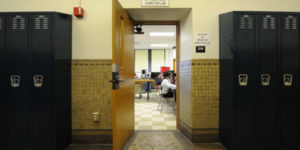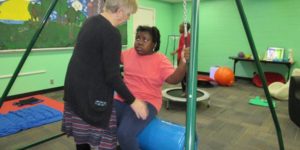What I’ve Learned From Special Education Teachers – AcceliBEAT Weekly Round Up
December 22, 2017
As students and educators prepared for the holiday break, many low-income working families, who depend on the federally funded Children’s Health Insurance Program (CHIP) to cover basic medical needs for their children, were left with little peace of mind when Congress decided to postpone new legislation to reauthorize the program until after the new year. As a result, many states, including Alabama, Connecticut and Colorado, have decided to halt enrollments or shutter the program if funding is not provided. In other news, Carol Dweck, famous for her work related to “the growth mindset,” won a $3.9 million dollar Chinese education award. Finally, why do former special education students earn so much less than their general education peers, and how can improvements to transition planning help these students succeed in the workplace? More on that and other news in this week’s AcceliBEAT!
 The ‘Forgotten’ Part of Special Education That Could Lead to Better Outcomes for Students
The ‘Forgotten’ Part of Special Education That Could Lead to Better Outcomes for Students
“If you have a great team, you have a great transition plan and follow through. If you don’t, then you have a piece of paper that isn’t followed, understood and is very loosey-goosey.”
 Congress Delays Decision on CHIP Renewal Until Next Year
Congress Delays Decision on CHIP Renewal Until Next Year
For 20 years, the state-run Children’s Health Insurance Program (CHIP) has provided comprehensive health coverage for children in families who earn too much for Medicaid but don’t have or can’t afford private insurance. Now, families will have to wait until next year to find out if funding for the program will continue.
 Major Education Award in China Goes to an American Professor (Who Wins Nearly $4 Million)
Major Education Award in China Goes to an American Professor (Who Wins Nearly $4 Million)
A Stanford University professor was named co-winner for her groundbreaking research in student motivation and into how to help young people cultivate success — and she took the occasion to call for more “heart” in the learning process.
 What I’ve Learned From Special Ed Teachers
What I’ve Learned From Special Ed Teachers
Special education teachers have valuable insights to share with their peers about patience, empathy, working with parents, and more.
The Surprising Thing Google Learned About Its Employees — and What It Means for Today’s Students
The conventional wisdom about 21st century skills holds that students need to master the STEM subjects — science, technology, engineering and math — and learn to code as well because that’s where the jobs are turns out to be a gross simplification.
Sensory Room Allows Students to Focus
Ben Franklin STEM Academy students with certain needs have a place to swing, watch bubbles, relax and focus better in class.
 2017 Education Research Highlights
2017 Education Research Highlights
Twelve studies that educators should know about, on everything from the benefits of mentors to the most effective studying strategies.
 New York City Is Placing Students With Disabilities in Mainstream Classes. But Do They Actually Feel Included?
New York City Is Placing Students With Disabilities in Mainstream Classes. But Do They Actually Feel Included?
A crucial concern has been whether the new environment makes students with disabilities actually feel less isolated and out-of-place.
 Because of Harvey, Texas Education Commissioner Gives Some Students Break on Testing
Because of Harvey, Texas Education Commissioner Gives Some Students Break on Testing
However, the state accountability system and steep sanctions remain in place for school districts impacted by Harvey.
Subscribe to Our Newsletter!
Stay informed on upcoming webinars, product updates, best-practice tips, contests and more!
![]()


